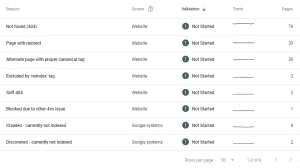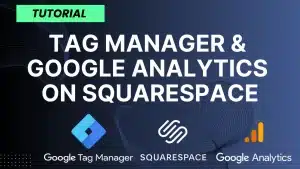Table of Contents
Why Should I Hire a Website Designer?
If you’re serious about building a website that drives revenue, hiring a professional website designer is the fastest path to success. A skilled designer goes beyond aesthetics, they understand the psychology of user behavior, incorporating persuasion techniques, UX/UI best practices, and strategic copywriting. This means they can create a website that speaks directly to your target audience and motivates them to take action.
Here’s why hiring a designer can make all the difference:
- Save time: Skip the long learning curve and avoid wasting time trying to master the skills designers already have.
- Get it done right: With expert design, development, and SEO knowledge, they guarantee every aspect of your site is optimized for performance.
- Unlock opportunities: A DIY approach often overlooks critical elements like SEO, conversion pathways, and user experience. A designer knows how to leverage these for better results.
A well-designed website isn’t just a digital brochure, it’s a tool that, when built right, can transform visitors into loyal customers and grow your business.
9 Things You Must Consider Before Hiring a Web Design Agency
1. Review Their Designers Portfolio
One of the first steps when evaluating a web agency is looking at its portfolio. This gives you a real sense of their capabilities and style.
Pay attention to these elements when reviewing their past work:
- Clean and organized: Is the design structured and easy to navigate? A well-organized layout is essential for usability.
- Aesthetically pleasing: Do the websites look professional, modern, and visually appealing? First impressions matter.
- Easy to navigate: Is it simple for users to find what they’re looking for? Navigation is key to keeping visitors engaged.
- Answers key questions: Does the site provide clear information to users, addressing common questions or concerns?
- Sales funnels and customer journeys: Are there obvious paths for visitors to take toward conversion, whether that’s making a purchase, signing up, or contacting the business?
- Showcases products and services well: Are products or services highlighted in a way that encourages interaction?
- Persuasive design: Did the website convince you to take action? A successful site drives results, not just looks good.
A well-rounded portfolio should showcase the agency’s ability to design sites that are not only
2. Look at Their Track Record
An agency’s track record is a critical part of your evaluation. A solid history of success, backed by positive reviews and recognition, is a strong indicator of reliability and expertise.
Here’s what to look for:
- Online reviews: Check reviews on trusted platforms like Google, Yelp, and Clutch. These sites provide valuable insights into how previous clients feel about the agency’s work. Keep an eye out for patterns in the reviews, whether positive or negative, that might indicate consistency in their performance.
- Be cautious of paid rankings: Some platforms, like Design Rush, award rankings based on payment rather than merit. Be mindful of agencies that may appear at the top of such lists without delivering actual value.
Have They Won Any Awards?
Industry recognition can be a strong signal of an agency’s quality and success. While awards aren’t everything, accolades from reputable sources show that the agency is respected in its field. Look for awards that highlight specific achievements, such as innovation, design excellence, or customer satisfaction.
3. Find Out What’s Included with the Website
When hiring a web agency, it’s important to understand what’s included in the website package. To have website that drives revenue and functions effectively, it needs to have several key elements.
Make sure the agency covers the following:
Multiple Pages
Your website should have more than just a homepage. To help Google understand your business and improve usability, you’ll need at least these core pages:
- Home page: The primary landing spot for most visitors.
- About Us page: This is where potential customers can learn more about your business.
- Service page: A dedicated page showcasing your services or products.
- Contact page: Make it easy for customers to reach you.
For even better results, consider adding:
- Individual service pages: Create a dedicated page for each service you offer to boost search engine visibility.
- Location pages: If you serve multiple areas, location-specific pages can improve your local SEO and attract nearby customers.
Google Analytics
Google Analytics is a free tool that tracks interactions on your website. It helps you monitor traffic, user behavior, and conversions. Surprisingly, many agencies charge extra for this, but it should be included at no additional cost since setup is quick and easy. Any professional agency should offer this as a standard part of their package.
Search Console
Google Search Console is another free tool that tracks how your site performs in search engine results. It’s an essential tool for monitoring SEO performance, identifying issues, and improving visibility. Be sure this is included so you can stay on top of your search rankings.
Session Recording
Tools like Hotjar or Microsoft Clarity allow you to record user sessions and analyze behavior on your site. This helps identify how visitors interact with your site, where they’re clicking, and where they might be getting stuck. Installing session recording tools will also help you identify bugs or usability issues early on.
Blog Section
A functional blog is essential for SEO and keeping your audience engaged. Your website should come with a built-in blog template, making it easy to publish new content regularly. Many agencies overlook this, but having a blog ready at launch helps you start creating valuable content immediately, driving traffic and improving your search engine rankings.
Page Indexing
After your website is built, all pages must be indexed in Google. Without indexing, your pages won’t appear in search results, and potential customers won’t be able to find you. Make sure the agency guarantees that all key pages are properly indexed at launch.
Have issues getting pages indexed? Learn how to fix unindexed URLs in Google Search console
Technical SEO and Schema Markup
Proper HTML markup is crucial for making your website search engine-friendly. Technical SEO elements like schema markup help search engines understand your site better, improving how it appears in search results. Make sure the agency includes technical SEO as part of their development process, optimizing things like header tags, meta descriptions, and structured data.
Fast Page Speed
Page speed is a major factor for both SEO and user experience. Your website needs to load quickly to keep visitors engaged and reduce bounce rates. Agencies should provide fast load times, verified by tools like GTmetrix or Google Lighthouse, to make sure your site performs well across devices.
Is There a Warranty?
Lastly, ask if the agency offers any type of warranty or post-launch support. This could include bug fixes, updates, or maintenance to keep your site continuously running smoothly after launch.
A warranty provides peace of mind and shows the agency stands by their work. For example, Grindstone Design offers a 60-day warranty covering any issues that may pop up after deployment.
4. Look at Their Process for Design & Copy
A professional website agency should have a structured process for both design and copywriting. Understanding how they approach these critical elements can give you insight into the quality of their work and whether they will deliver a site that truly meets your needs. Here’s what to consider:
Do They Use a Framework?
A solid web agency should have a clear framework or methodology they follow. A framework helps the web agency keep the design and copy built with purpose and aligned to your business goals. The agency should take time to understand your target audience, what motivates them, what challenges they face, and how they make decisions. A common mistake by novice agencies is jumping straight into design without considering who they’re talking to. Remember, your website isn’t just a digital business card; it’s a tool to drive revenue and should be strategically crafted to produce results.
Are the Designs Custom or Template-Based?
Ask whether the agency creates custom designs tailored to your business or if they rely on templates used for other clients. Custom designs should make your website stand out and reflect your unique brand.
If they’re using a pre-made template, you should expect a discount, as they’re spending less time on personalization and creativity. Make sure you know what you’re paying for, and understand custom design comes with a higher level of detail & resources.
What’s Their Revision Process?
Revisions are a natural part of the web design process, but it’s important to clarify upfront how many revisions are included and what happens if you need more.
Ask about the revision limits for both pages and sections and find out the cost for additional changes beyond the agreed-upon revisions. Some agencies charge hourly rates for extra work while others charge a flat rate, so understanding these costs ahead of time can save you from surprise charges later on.
5. What Questions They’re Asking You
The type of questions a web agency asks during your initial conversations can be a strong indicator of their expertise. If they focus on superficial details like the number of pages, colors, and basic design preferences without diving deeper into your business goals, it’s a red flag.
Agencies that only scratch the surface and rush to give you an estimate based on limited information may lack the experience needed to build a website that generates real results.
Instead, a quality agency will dig deeper. They’ll ask questions like:
- What motivates your customers to buy? Understanding your audience’s pain points and desires is key to creating a site that converts.
- What metrics or KPIs would make the website successful for you? Whether it’s lead generation, sales, or engagement, the agency should align its design and copy with your business goals.
- How do you define success? Knowing your expectations helps the agency craft a website that meets both your short-term and long-term goals.
A conversation with a skilled agency might sound something like this: “After reviewing your competitors and understanding your business, it looks like you’ll need a total of 15 pages to stay competitive in your market. We can start with 4 pages if that fits your budget, but I recommend gradually adding more pages over time to rival what your competitors are doing.”
This kind of thoughtful dialogue demonstrates that the agency has a solid understanding of business strategy and isn’t just focused on the technical aspects of web design.
6. What Are Their Pricing and Payment Terms?
Understanding an agency’s pricing and payment terms upfront is critical to avoiding misunderstandings down the road. Each agency structures its terms differently, and knowing what to expect makes sure you are prepared for the financial commitment.
Here are the most common payment structures:
- 50% upfront, 50% upon completion: This is one of the most standard arrangements. It splits the risk for both parties, giving the agency a commitment to start work while ensuring you maintain leverage until the project is complete.
- Full payment upfront: Some agencies may require the entire payment before beginning the project. While this can sometimes streamline the process, it places more risk on you, especially if the project is large or complex.
- Payment upon completion: Although rare, some agencies offer payment terms where you don’t pay until the project is fully delivered. This might sound ideal, but it’s important to evaluate the quality and trustworthiness of the agency carefully in these cases.
Make sure you are fully clear on their terms before proceeding. Ask questions like:
- Are there any payment milestones for larger projects?
- What happens if the project is delayed or if revisions are needed after final payment?
A clear, flexible agreement sets expectations and helps both parties feel comfortable throughout the project.
Look for agencies that are transparent and willing to discuss options that fit your budget and comfort level.
7. Find Out What They Offer for Post-Launch Support and Ongoing Maintenance
A well-built website is just the start, what happens after launch is just as important. Post-launch support and maintenance are crucial for keeping your website running smoothly and ensuring it stays up to date. Different agencies offer various levels of support, so it’s essential to clarify what’s included before signing any agreement.
Here’s what you need to consider:
- Uptime Monitoring: Ask if the agency provides uptime monitoring to make sure your site remains online 24/7. Downtime can lead to lost revenue and a negative customer experience, so this is an important service.
- Content Updates: Many agencies offer packages that include text and image updates. This allows you to keep your website’s content fresh and relevant without needing to make the changes yourself.
- Bug Fixes: Even after launch, technical issues can arise. Make sure the agency includes bug fixes as part of their ongoing support to keep your site functioning properly.
It’s also important to know how long this support lasts. Some agencies offer a limited period of post-launch support, while others provide ongoing maintenance as part of a monthly package.
Be sure to ask:
- What’s included in the maintenance plan?
- Are there additional fees for updates, fixes, or other services after the launch?
Having a clear understanding of the post-launch services ensures there are no surprises, and your site stays optimized and functional long after it goes live.
8. What Is Their Policy on Intellectual Property and Ownership Rights of the Website?
When you invest in a website, ownership matters. You need to hold the keys to everything, the design, content, and domain, so you’re not left stuck if things go south.
Here’s why:
- Full Intellectual Property Rights: If you don’t own your website’s intellectual property (IP), the agency essentially controls your business’s most vital online asset. Always choose an agency that guarantees you 100% ownership of the website once it’s completed. Anything less puts you at risk of being unable to make changes or move your site without their approval.
- Domain Control: Never, under any circumstance, allow an agency to register your domain under their account. This move gives them control of your domain, meaning they could hold it hostage if something goes wrong. Make sure the domain is in your name and that you have direct access to the domain registrar.
If an agency expects you to relinquish these rights, walk away immediately. You should have complete control over the website you’ve paid for, so you can make future changes, switch agencies, or manage the site however you see fit without jumping through hoops. Your website is your business’s online foundation, don’t let anyone else hold it hostage.
9. What Are Your Plans for Future Growth?
Building a website is just the beginning. A beautifully designed site won’t automatically drive traffic or conversions, it needs ongoing marketing efforts to truly perform. When considering an agency, you should ask what services they offer to support your business after launch.
Here’s what you need to know:
- SEO: Search Engine Optimization (SEO) is how you get your site ranked on Google and other search engines. Does the agency offer ongoing SEO services? A website without SEO is like a car without fuel, it won’t get you anywhere.
- PPC (Pay-Per-Click): Do they provide PPC Ad services to help drive paid traffic? Using Google Ads or or social media platforms can give your business a significant boost, especilly in competitive markets.
- Email Marketing: Email marketing is one of the most effective ways to engage with customers and drive repeat business. Find out if the agency offers email campaign services or has a partner they can refer you to.
- Social Media Marketing: Social media can be a powerful traffic driver if done right. Do they offer social media management or campaigns? If not, can they connect you with a trusted partner who does?
If the agency doesn’t offer these services directly, ask if they have strong referral partners who can support your digital growth. A good web agency won’t just build your site and walk away, they’ll have a plan to help you scale and grow in the future.
Where to Find a Web Agency
Finding the right agency can make or break your website project.
Here’s where to start your search:
- Google: Do a targeted search, but don’t just stop at page one. Look for agencies with consistent, high-quality reviews. Be thorough in your evaluation, great rankings don’t always mean great results.
- Personal Recommendations: Ask people you trust who’ve gone through the process. Honest feedback from someone who’s already worked with an agency is invaluable. They’ll tell you what went right, and what didn’t.
- Look at Websites You Admire: See a site you love? Check the footer. Many businesses credit their web agency, and if you like the results, it’s a fast track to finding an agency that aligns with your vision.
- Design Platforms (Dribbble, Behance): Design platforms aren’t just portfolios, they show what an agency is really capable of. This is where the pros showcase their best work. Look for consistent quality across multiple projects, not just one impressive piece.
- Clutch and Review Sites: Don’t trust just any review site. Stick to platforms like Clutch that focus on verified, in-depth reviews. These provide real insights from businesses similar to yours, helping you weed out the agencies that don’t deliver.
How to Tell If the Web Agency Is Not the Right Fit
There are clear signs that a web agency isn’t the right choice.
Here’s what to watch out for:
- Unprofessional Behavior: If the agency can’t conduct themselves professionally from the start, they won’t magically improve during your project.
- Vague Answers: If they dodge questions or give unclear responses, that’s a big red flag. You need transparency, not guesswork.
- One-Size-Fits-All Approach: If they push templates or generic solutions, they’re not considering your business’s unique needs. Your site should be tailored to your goals, not a cookie-cutter template.
- Not Upfront About Pricing: If the pricing isn’t crystal clear from the start, they might hit you with hidden fees later. Honest agencies lay out all costs upfront.
- Poor Communication: If they’re slow to respond or leave you hanging, expect the same treatment throughout the project. Consistent communication is non-negotiable.
- Too Good to Be True: If they’re offering ridiculously low prices or unrealistic promises, be skeptical. You get what you pay for.
- Lack of Interest in Your Business Goals: If they don’t ask about your goals, your audience, or how success will be measured, they’re not thinking long-term. A good agency digs deep into your business to build a site that works for you.
At the end of the day, trust your gut. If you don’t feel comfortable or confident with them, walk away. Never work with someone you don’t trust.
How To Hire A Website Designer
Once you’ve vetted your options and found an agency you trust, the process is straightforward. Here’s what to expect:
- Sign a Work Agreement: This document will lay out the scope of work, deadlines, payment terms, and any other conditions. Read it carefully. Make sure everything you discussed is clearly outlined, no surprises later.
- Make the Payment: Whether it’s a deposit, full payment, or milestone-based, get the payment terms sorted upfront. Stick to the agreed terms to keep things moving smoothly.
- Onboarding: The agency should have a clear onboarding process. Follow their steps, provide any necessary materials (like branding assets or content), and stay engaged as they begin the project.
Once the agreement is signed and the payment is made, it’s time for them to get to work. Stay in the loop and keep communication open so everything stays on track.
Evaluating the Agency During the Build/Design
Hiring an agency doesn’t mean your job is done. You need to stay involved and evaluate their progress throughout the project.
- Are they meeting deadlines? If they’re missing deadlines early on, expect more delays. Regular check-ins and updates are key to staying on top of the timeline.
- Do they have all the information they need? Make sure they’ve asked all the right questions upfront. If they’re constantly requesting additional info, it could be a sign of disorganization, or worse, scope creep. Set clear expectations at the start to avoid back-and-forth later.
- Do you like the designs? If the designs don’t feel right to you, your audience probably won’t like them either. Be honest with your feedback early in the process to avoid major changes down the line.
- Are they delivering on the agreed scope? Every item in the contract should be fulfilled as expected. If anything feels off, address it immediately to avoid costly revisions later.
Tips for Open Communication and Managing Timelines
- Set Up Regular Check-ins: Schedule weekly or bi-weekly meetings to review progress and keep everything on track. Consistent communication helps catch issues before they become big problems.
- Use Project Management Tools: Tools like Asana, Trello, or Basecamp can help both you and the agency keep track of tasks, deadlines, and feedback. This keeps everything organized and reduces the chances of miscommunication.
- Be Clear on Feedback: Don’t hold back on feedback, provide it promptly and clearly. This keeps the project moving forward and avoids bottlenecks. Document your feedback so there’s no confusion.
- Hold Them Accountable: If deadlines start slipping, call it out immediately. Discuss solutions and set realistic expectations for how they’ll get back on track.
Just because you’ve hired an agency and made a down payment doesn’t mean you’re locked in. Most contracts have exit clauses, and you should be ready to use them if things aren’t going as promised. If the project is going off track and the agency isn’t delivering, cut your losses early. Delaying could cost you more time and money than switching to a better agency.
The key is doing your homework before signing the contract, if you’ve thoroughly reviewed their portfolio, case studies, and reviews, you should already be confident in their ability. But don’t hesitate to act if things aren’t working out.
What Happens After the Website Is Built?
1. Final Handover
After the website is built, you should receive everything you need to fully control and manage it moving forward. This includes:
- Complete Access: You should have access to all elements of the site, this means the CMS (like WordPress), your domain registration, hosting accounts, and any files associated with the design or development.
- Training: Many agencies offer basic training on how to manage the website yourself. If you’re not familiar with the platform they’ve built it on, ask for a walk-through or documentation so you can make updates, add new content, and keep the site running smoothly.
- Documentation: Any custom-built features, integrations, or third-party tools should come with documentation. This helps you, or anyone you hire later can maintain and troubleshoot the site if needed.
2. Post-launch testing and Adjustments
- Bug Fixes: Even with the best planning, minor bugs or issues can surface once the site goes live. A good agency should include a post-launch period where they fix any bugs or performance issues without charging extra. These issues might include broken links, loading errors, or formatting problems on different devices.
- Performance Optimization: After launch, the agency should check the website’s performance on multiple browsers and devices. They should guarantee fast loading times and confirm that the site is mobile-friendly and fully responsive.
3. SEO and Analytics Setup
- Basic SEO: Once the site is live, the agency should have already integrated basic SEO practices. This includes meta tags, alt text for images, proper use of headings, and schema markup. These elements tell search engines what each page of your site is about and make it easier for Google to know when to recommend your site.
- Analytics: Proper tracking tools like Google Analytics and Google Search Console should be set up from day one. These tools help you monitor site traffic, user behavior, and performance. Without them, you won’t have the data you need to make informed decisions about improvements or future marketing efforts.
4. Ongoing Support and Maintenance
Websites are not static, they require ongoing attention to remain secure, fast, and functional.
Here’s what to expect:
- Maintenance Plans: Most agencies offer ongoing maintenance packages. These can include regular updates, security patches, backups, and fixes for any issues that arise after launch. Ask what’s included and make sure it’s clear how much ongoing support will cost, and what.
- Security: Your website should have proper security measures in place, including SSL certificates (the lock icon in your URL bar), regular backups, and protection against potential hacks or malware.
- Content Updates: Depending on your agreement, the agency may also handle minor updates, like adding new content, updating images, or tweaking design elements. This can be part of a retainer or paid for as needed.
5. Planning for Future Growth
A well-built website should be scalable. Your business might evolve, and your website should be able to grow with it. Here’s what to consider:
- Scalability: Can your website handle future growth? Whether it’s adding an e-commerce section, more complex features, or just scaling up to handle more traffic, the site should be built with flexibility in mind. If you plan to expand, make sure the agency designed your site to allow for those changes without needing a complete rebuild.
- Marketing Support: If you’re planning to run digital marketing campaigns like Google Ads, social media ads, or email marketing, you need a website that is fully integrated with tools to track these campaigns. This means having tracking pixels, conversion pages, and clear call-to-action buttons in place.
6. Red Flags to Watch Out For Post-Launch
Not all agencies offer the same level of post-launch service, so be on the lookout for potential issues:
- Unresponsive Support: If the agency becomes hard to reach once the site is live, that’s a bad sign. Ongoing communication should remain smooth and open, especially if you encounter issues.
- Hidden Fees: Some agencies may try to charge for things that should be included as part of basic maintenance. Clarify exactly what is covered and how much extra support will cost, so there are no surprises.
- Locked-Out Access: Be wary if the agency tries to maintain control over essential parts of the website, like hosting or your domain. You should have full ownership and access, or else you could be stuck relying on them for every small change.
Conclusion
In this guide, we’ve covered every crucial step you need to take before hiring a web design agency. From evaluating portfolios to understanding post-launch support, each part of the process matters in ensuring you choose an agency that will help your business succeed online. By now, you should have a clear understanding of the questions to ask, the red flags to avoid, and the expectations to set for your project.
Remember, a good web design isn’t just about aesthetics; it’s about functionality, user experience, SEO, and creating a platform that grows with your business. As you move forward, always keep these considerations in mind to so you can get a website that’s worth the investment.
At Grindstone Design, we specialize in crafting custom websites that not only look great but are designed with your long-term growth in mind. Our team goes beyond surface-level solutions, offering in-depth insights into your audience, implementing effective SEO, and providing continuous support even after your site is launched. We believe in transparency, collaboration, and helping our clients succeed in the digital world.
Ready to take the next step? Let us show you how we can build a website that drives real business results. Get in touch with us today to schedule a free consultation and see if we’re the right fit for your web design needs.






